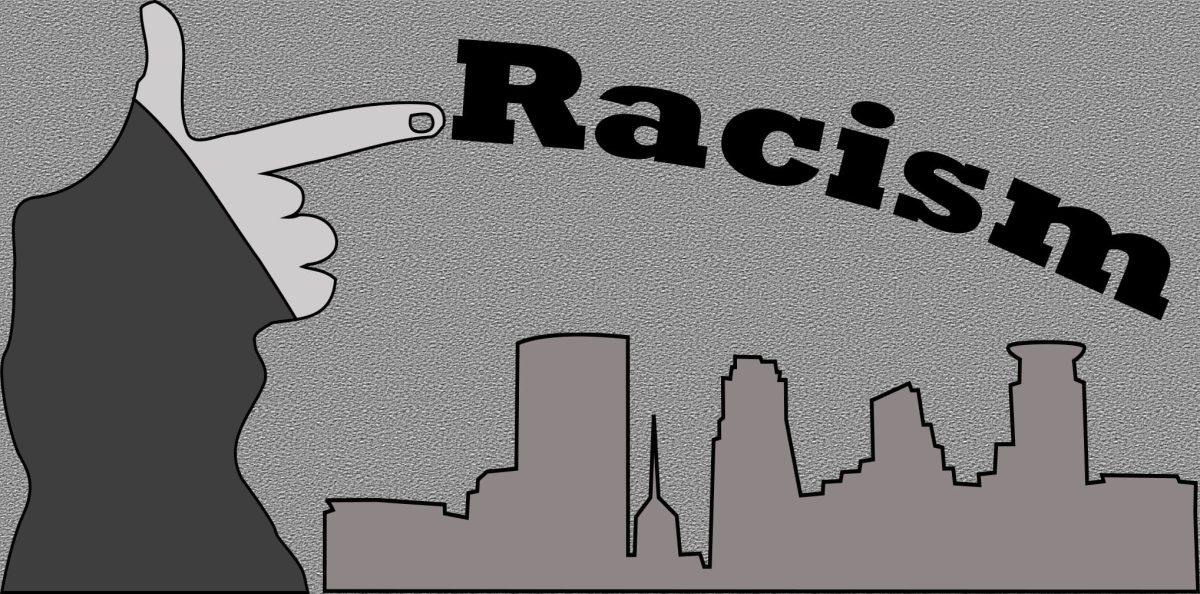In an act of goodwill, Minneapolis Mayor Betsy Hodges joined volunteers prior to election day in their mission to encourage Minnesota citizens to vote. What began as an innocent act of civic engagement ended in controversy and embarrassment when a photo of Hodges posing with a volunteer was misconstrued – by the Minneapolis Police Department, no less – as an endorsement of gang activity. The photo features Hodges a white woman and Neighborhoods Organizing for Change worker Navell Gordon a black man pointing at each other, a gesture that the Minneapolis police force called a known gang sign. After local news station KSTP-TV aired what was meant to be an exposé of Hodges’ gang associations using these unfounded accusations as a basis, the story was nationally circulated and widely ridiculed for its obvious racism.
Mockingly dubbed “Pointergate,” the story comes on the heels of an open letter Hodges sent to Minneapolis residents that accuses the Minneapolis police of abusing the public’s trust. Police union chief John Delmonico, a source of the allegations against Hodges, has traditionally responded combatively to those who criticize the conduct of the Minneapolis police, and this occasion was no different. Delmonico reacted to this criticism with bitterness, as he displayed in an interview on the KSTP report.
“Is [Hodges] going to support gangs in the city, or cops?” But there are more troubling factors at work here. Gordon was first identified by the news report as merely a “convicted criminal,” which would support the police’s fabricated claims about Hodges’ gang associations. In reality, Gordon does have a criminal record but has been trying to turn his life around by working for Neighborhoods Organizing for Change. All of this reinforces the fact that every one of these allegations was pure speculation, based on nothing more than bitter rivalry and the convenience of Gordon’s physical appearance.
This story only legitimizes Hodges’ distrust of the police. That police officers would allow a grudge to get in the way of clear-headed, unbiased investigation does not speak very highly of their dependability. What’s more, there was no investigation required at all in this case because no criminal activity occurred. The “Pointergate” moniker is completely warranted due to the situation’s complete absurdity; however, this absurdity is tempered by its disturbingly racist undertones that speak to obvious bigotry on the part of the Minneapolis police as well as the ostensibly unbiased news source that ran with the story.
While “Pointergate” is slightly more amusing than other recent stories of police brutality and racial discrimination, it still reveals a concerning propensity toward racial stereotyping that in a city as socially progressive as Minneapolis comes across as pretty shocking. Even more concerning, both the police and the news station are standing by the report despite its widespread ridicule by everything from fellow local news sources to The Daily Show. Both Hodges and Gordon have responded to the controversy, telling the Star Tribune they were in fact just “pointing at each other” in the picture. The fact that this needs to be explained at all is troubling.
With the release of each of these stories, it becomes more and more apparent that the dream of living in a post-racial society that began with President Obama’s election is unlikely to become reality any time soon. In order to achieve it, the sort of racial stereotyping of which the Minneapolis police is guilty needs to stop. While “Pointergate” may stem more from general animosity than racism – which is obviously no less concerning – it could not have come about were it not for the fact that Gordon is a black man whose actions were categorically misappropriated in order to fit in with preconceived notions of his race.
This unfortunate story has tarnished the progressive image that Minnesota has built up lately with its legalization of same-sex marriage, its recent initiatives to combat racism in public schools and its re-election of Democratic candidates like Governor Mark Dayton, Senators Al Franken and Amy Klobuchar and State Representative Keith Ellison. “Pointergate” points out deeper social issues both outside of and within our state that need to be addressed.
Nina Hagen ’15 [email protected] is from St. Paul, Minn. She majors in English with a concentration in women’s and gender studies.
Graphic Credit: ETHAN BOOTE/MANITOU MESSENGER



